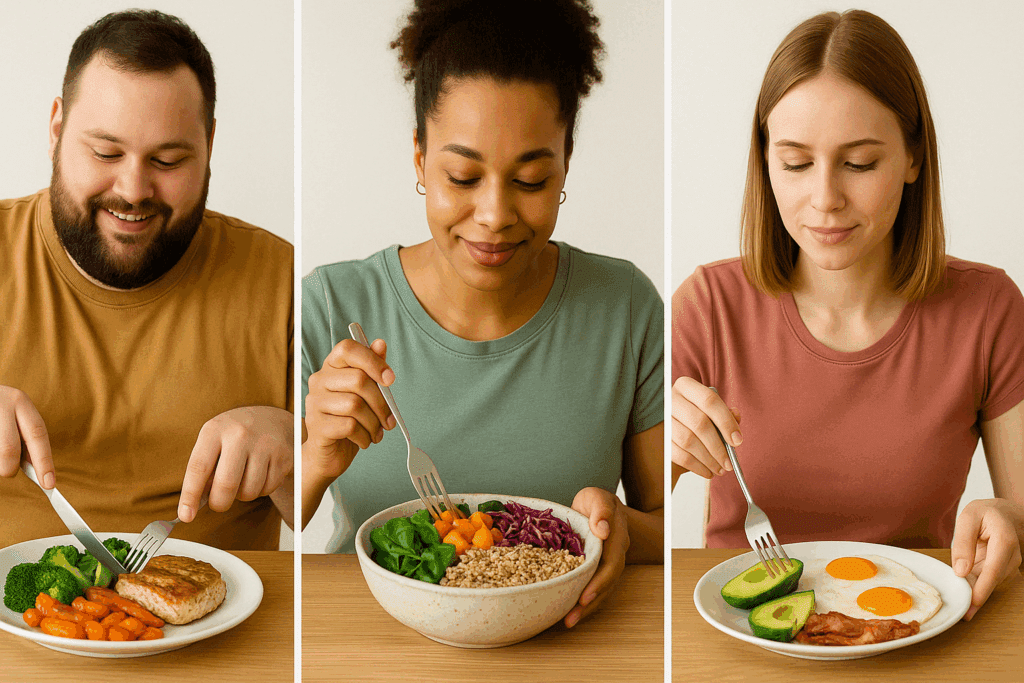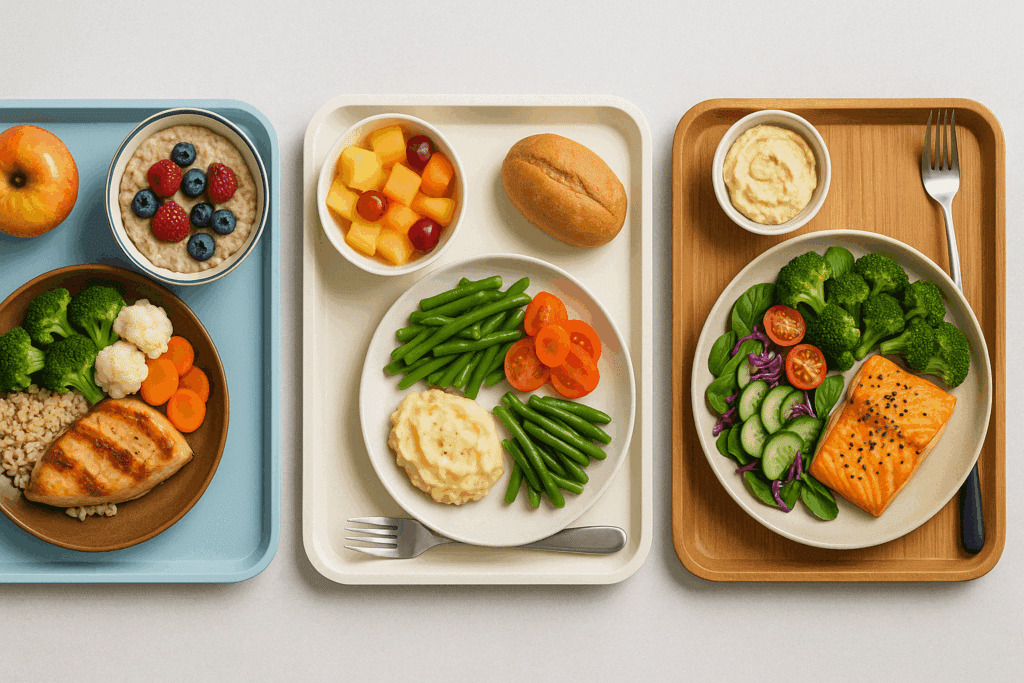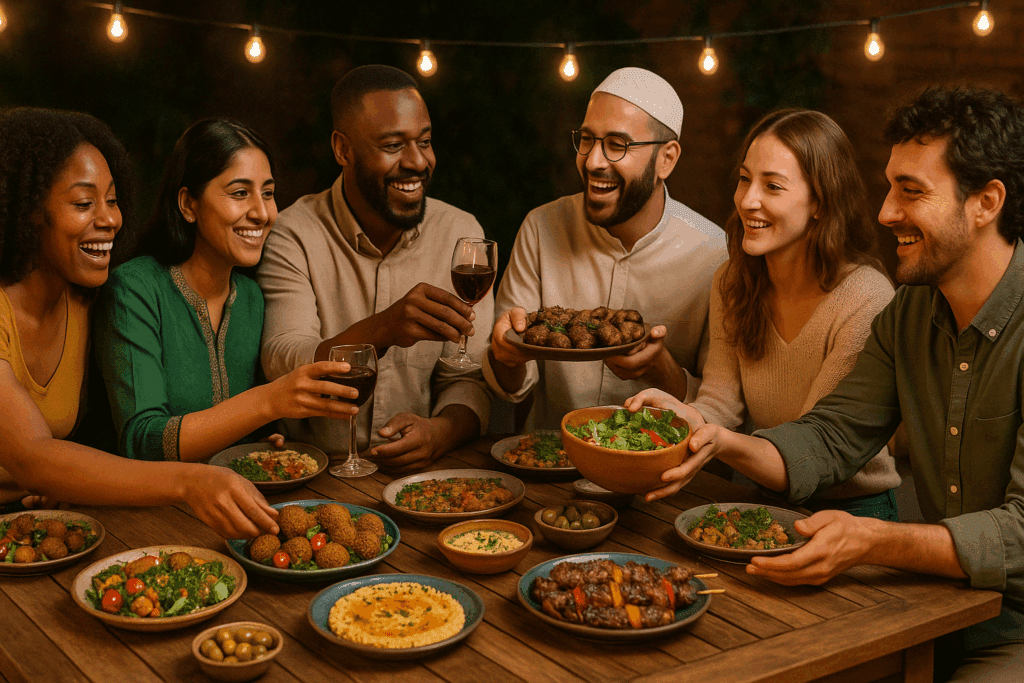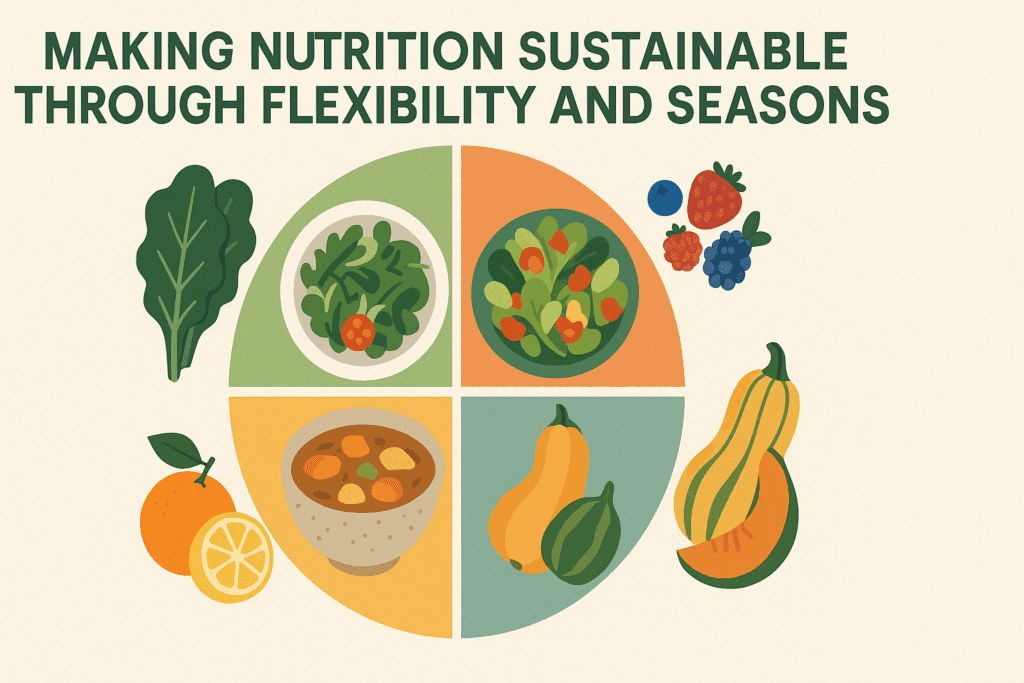In the ever-evolving world of health and wellness, navigating dietary advice can feel overwhelming. With countless programs claiming to be the best diet for weight loss, longevity, or peak performance, the noise can easily drown out your body’s individual needs. While some diets offer promising short-term results, few deliver sustainable benefits unless they’re aligned with your personal lifestyle, health conditions, and values. For those who frequently say, “I am on a special diet plan,” it often means they’ve already begun that journey—tailoring their eating habits to support medical needs or lifestyle preferences. But even then, long-term success hinges on customization, mindfulness, and flexibility.
Understanding how to find a diet that works for you is not about following rules to the letter; it’s about cultivating awareness, tuning in to your body’s responses, and building a foundation rooted in nourishment rather than deprivation. Let’s explore how to make informed, sustainable, and personalized food choices that truly define what the best diet looks like—for you.
You may also like: How a Whole Foods Diet Supports Sustainable Weight Loss: Expert Tips for Eating Whole Foods to Lose Weight Safely

Why Personalized Nutrition Matters More Than Trends
There’s no universal formula that fits every individual. What energizes one person may trigger inflammation, fatigue, or bloating in another. This variance is due to a host of factors including genetics, gut microbiota, metabolic rates, and environmental influences. The buzz surrounding popular plans like keto, vegan, paleo, or intermittent fasting often ignores this bio individuality, presenting them as blanket solutions. While each approach has its merits, assuming a one-size-fits-all outcome can be misleading and even harmful.
When someone says, “I am on a special diet plan,” it typically reflects an experience informed by trial, medical necessity, or deeper understanding of their body’s cues. For example, individuals with lactose intolerance may thrive on dairy-free regimens, while others need to adjust their macronutrient ratios to manage diabetes. Understanding that your ideal dietary pattern may differ drastically from your peers can be freeing. It empowers you to focus on internal cues over external rules—and that mindset is essential for lasting health.

Listening to Your Body: The Key to Unlocking the Best Diet
Mindful observation is the cornerstone of tailoring your nutrition. The ability to notice how certain foods impact your energy, digestion, mood, and sleep reveals patterns that guide smarter choices. Symptoms such as bloating, breakouts, fatigue, or mood swings after meals aren’t just random—they may signal food sensitivities or nutrient deficiencies.
This intuitive feedback becomes particularly important when you are on a special diet plan. If your plan is driven by medical concerns—like IBS, PCOS, or autoimmune disease—tracking your symptoms after meals helps refine your approach. Perhaps you notice improvement after cutting gluten or find that high-fat meals make you sluggish. This awareness is more than anecdotal; it becomes data that informs evidence-based changes.
Importantly, mindful eating doesn’t require rigid control or food anxiety. Instead, it fosters curiosity and self-trust. It transforms eating from a mechanical act into an embodied experience, where every bite is an opportunity to learn, not just fuel.

The Role of Medical Conditions in Shaping Dietary Needs
Health status is often the most significant driver of dietary decisions. People managing chronic illnesses often find themselves navigating complex food guidelines. In these cases, the phrase “I am on a special diet plan” isn’t a preference—it’s a prescription. For example, individuals with Type 2 diabetes may adopt low-glycemic, high-fiber diets to stabilize blood sugar, while those with kidney disease might require low-protein, low-phosphorus plans.
Even among those seeking to prevent disease, nutrition choices matter. The best diet for reducing cardiovascular risk may emphasize plant-based foods, omega-3s, and reduced sodium intake. Cancer survivors often benefit from antioxidant-rich, anti-inflammatory foods. The diversity in dietary goals underscores the need to work closely with registered dietitians or functional medicine practitioners when crafting personalized plans. These experts can help navigate evidence-based strategies while still honoring your preferences and lifestyle.
Balancing Scientific Research with Real-World Practicality
There’s no shortage of clinical research on nutrition. However, even the most compelling science is irrelevant if the application is unrealistic. It’s one thing to read about the benefits of Mediterranean-style eating; it’s another to cook with olive oil, fish, and leafy greens five nights a week in a hectic household or limited food environment.
A diet that cannot be maintained in the real world is not the best diet—even if it’s nutritionally ideal. Accessibility, cost, convenience, and cooking ability all play crucial roles in dietary adherence. If you are on a special diet plan, these barriers can be especially challenging. Fortunately, advances in food delivery, frozen meal services, and grocery delivery apps have made specialized diets more attainable than ever.
Practicality also includes flexibility. While structure is important for staying on track, rigid perfectionism can lead to stress and binge-rebound cycles. Building flexibility into your plan—like allowing a treat or choosing a simpler meal when time is tight—encourages consistency without burnout.
Mindful Eating: A Practice That Transcends Every Diet
No matter what type of eating pattern you follow, mindful eating is a universal tool for improved health. It involves slowing down, noticing flavors and textures, and checking in with hunger and fullness cues. This simple but profound practice can significantly shift your relationship with food, reduce overeating, and improve digestion.
For people who say, “I am on a special diet plan,” mindfulness helps maintain motivation and compliance. Rather than feeling like a victim of dietary rules, you become an active participant in your health journey. You begin to notice how your body feels after a nourishing meal versus a processed one, and you grow attuned to what it actually needs rather than relying on cravings or emotional cues.
Mindful eating can also serve as a buffer against the mental fatigue that often accompanies restricted diets. When you enjoy your meals with presence and intention, eating becomes more satisfying—even when ingredients are limited.

Cultural and Ethical Considerations in Choosing the Best Diet
Food is deeply personal. Beyond nutrients and calories, it carries meaning, identity, and tradition. The best diet honors not just your biology but your beliefs. For some, this may mean eating kosher or halal. For others, it’s about following a vegetarian or vegan lifestyle for ethical or environmental reasons. Integrating these principles into your nutrition plan adds depth and sustainability.
If you are on a special diet plan that’s also ethnically or culturally motivated, you may face unique challenges—especially in social settings or while traveling. Learning to navigate restaurant menus, family gatherings, and holiday meals while staying true to your values can be empowering rather than limiting. Tools like meal prep, recipe adaptation, or finding community support groups can make it easier to balance health, tradition, and identity.
Food should be a source of connection—not conflict. The more your diet reflects your values, the more likely it is to support your long-term wellness journey.

The Psychology Behind Dietary Choices and Behavior
Behavioral science plays a massive role in dietary success. Willpower is not infinite, and stress, emotions, and social pressures often sabotage the best intentions. Understanding why you eat—not just what you eat—can help you reshape habits in meaningful, lasting ways.
If you are on a special diet plan, addressing psychological triggers is essential. Emotional eating, for example, is common in restrictive diets where food becomes either a reward or a source of guilt. Therapy, mindfulness, or even cognitive behavioral techniques can help decouple food from emotional regulation.
Creating new rituals around food, like cooking as a form of self-care or journaling your meals and feelings, can reinforce healthier behavior. By addressing both the mental and emotional aspects of eating, you create an environment where your diet thrives—not through force, but through alignment.

Making Nutrition Sustainable Through Flexibility and Seasons
A well-balanced diet adapts to the seasons of the year—and of your life. Nutritional needs change with age, activity levels, and even climate. Seasonal eating, which involves consuming fruits and vegetables that are locally in season, can improve freshness, taste, and nutrient density.
Even if you are on a special diet plan, variety is critical. Repetitive eating limits your exposure to different nutrients and can lead to palate fatigue. For example, someone on a gluten-free diet should explore a range of alternative grains like quinoa, millet, and amaranth rather than relying solely on rice. Similarly, plant-based eaters benefit from rotating legumes, nuts, and seeds for optimal protein and micronutrient balance.
Your best diet is one that evolves with you. Whether you’re recovering from illness, training for a marathon, adjusting to a new job, or navigating a pregnancy, your food choices should reflect your changing needs—not rigid adherence to an old plan.
How Social Support Strengthens Long-Term Success
No diet plan exists in isolation. Relationships influence what, when, and how we eat. Partners, children, co-workers, and friends all shape food choices—either by providing support or unintentionally creating obstacles.
Those who say “I am on a special diet plan” often face pushback from social circles, especially if their dietary needs differ from cultural norms or family traditions. Learning how to communicate boundaries and ask for support is a key skill. Whether that means suggesting a restaurant that offers options for your dietary needs, or educating friends about your reasons, proactive communication can ease social tension.
Community-based tools also help. Online support groups, apps with accountability tracking, or even meal prep clubs provide motivation and shared success. When your environment aligns with your goals, the path becomes smoother and more sustainable.
Frequently Asked Questions (FAQ): Finding the Best Diet for Your Lifestyle
1. How can I tell if the diet I’m following is actually the best diet for me long term?
The true test of the best diet isn’t just about weight loss or symptom relief in the short term—it’s how well the diet supports your daily life over months and years. A sustainable diet aligns with your energy levels, supports your immune system, keeps your digestion smooth, and feels manageable emotionally and socially. If you consistently feel deprived, moody, or socially isolated, your current eating plan may not be the best fit, even if it appears to be working. One underrated method is journaling your physical and emotional responses to meals over time. Even when you are on a special diet plan, observing these patterns can help you determine whether you’ve found a truly long-term solution or just a temporary fix.
2. What if the best diet for me conflicts with my family’s eating habits or cultural norms?
Navigating dietary differences within a family or cultural context can be emotionally tricky, especially if you are on a special diet plan for health reasons. In these situations, communication and compromise are essential. For example, modifying traditional meals to include healthier alternatives—or making two versions of the same dish—can preserve cultural integrity while honoring your needs. If your loved ones resist, sharing the reasons behind your choices and the benefits you’ve experienced may build empathy. Ultimately, the best diet should support your personal well-being without severing your connection to community or heritage.
3. Can the best diet change over time depending on my life stage or health goals?
Absolutely. The best diet for your lifestyle at 25 may be different from the one you need at 45 or 65. Hormonal shifts, muscle mass changes, chronic conditions, and even your job or stress levels can influence what your body requires nutritionally. For instance, someone recovering from surgery or pregnancy might need more protein and micronutrients than usual, while others managing hypertension may benefit from sodium reduction. If you are on a special diet plan, it’s critical to reassess periodically with a healthcare provider or dietitian to ensure it continues to meet your changing needs.
4. How do I stick to the best diet while traveling or dining out?
Consistency becomes challenging when routines are disrupted. However, the best diet doesn’t require perfection—it’s about making the best choices in each moment. While traveling, look for restaurants that offer fresh, customizable meals. Apps like HappyCow or Mealime can help you find options that align with your needs. If you are on a special diet plan, call ahead to restaurants to ask about substitutions or bring snacks that support your plan. Flexible structure—not rigid restriction—keeps your diet functional and enjoyable even away from home.
5. What are some signs that I need to switch from my current diet to a new one?
Even if you started with enthusiasm, your current plan might no longer serve you. Red flags include persistent fatigue, digestive distress, sleep disturbances, or feeling mentally foggy. If you feel overly preoccupied with food, guilty after meals, or socially withdrawn, those emotional cues are equally important. When you are on a special diet plan, these issues might point to hidden imbalances, overly restrictive rules, or unaddressed nutrient deficiencies. The best diet evolves with your body and mind—not against them—so listening to these signals is key to maintaining a healthy balance.
6. Are there technological tools that can help personalize the best diet for me?
Yes, the rise of personalized nutrition technology is transforming how we identify the best diet for each individual. From microbiome testing kits like Viome to genetic analysis platforms such as Nutrigenomix, users can access insights that fine-tune food choices. Continuous glucose monitors (CGMs) are also gaining traction, allowing real-time tracking of how specific foods affect your blood sugar—even if you are on a special diet plan already. These tools offer new ways to refine your approach based on objective biological data, although it’s wise to review results with a qualified health professional to avoid over-interpreting the findings.
7. How can someone on a limited budget still follow the best diet for their health needs?
Contrary to common belief, following the best diet for your health doesn’t require shopping exclusively at high-end grocery stores or eating exotic superfoods. Beans, lentils, frozen vegetables, oats, and brown rice are all budget-friendly staples rich in fiber, vitamins, and minerals. If you are on a special diet plan that excludes common ingredients, buying in bulk and cooking at home are cost-effective strategies. Planning meals in advance and reducing food waste by repurposing leftovers can also maximize savings. A well-rounded, nutrient-rich diet is within reach for nearly every budget when guided by strategy and intention rather than trends.
8. What role does sleep and stress play in choosing the best diet?
Sleep and stress have profound impacts on how your body processes food, responds to hunger hormones, and stores fat. If you’re sleep-deprived or chronically stressed, even the best diet may not deliver optimal results. For instance, elevated cortisol from stress can lead to insulin resistance or increased cravings for sugary foods. If you are on a special diet plan, incorporating sleep hygiene and stress management—through activities like yoga, breathwork, or cognitive therapy—can significantly amplify the effectiveness of your dietary efforts. Nutrition doesn’t operate in a vacuum; it interacts dynamically with all lifestyle factors.
9. How do social media trends influence perceptions of the best diet, and how can I filter the noise?
Social media can be both inspiring and misleading when it comes to dietary advice. Viral videos, influencer meal plans, or aesthetic food photos may create unrealistic expectations or encourage extreme behaviors. When everyone seems to be raving about a new fad, it’s easy to question your own choices—even if you are on a special diet plan that’s working well for you. Combat this by following credentialed professionals, questioning the source of any claims, and remembering that what’s trending is not necessarily what’s best. The best diet should be based on science, personal experience, and sustainability—not popularity.
10. What should I do if I feel socially isolated because I am on a special diet plan?
Feeling left out at gatherings or family dinners is a common challenge, especially when you are on a special diet plan due to medical needs or values. One powerful strategy is to proactively offer to host or contribute a dish that aligns with your plan but appeals to everyone. Finding online or local communities that share your dietary goals can also reduce isolation and create a sense of belonging. When your inner circle understands your reasons and sees your commitment, they’re more likely to support rather than question your choices. Ultimately, the best diet supports your social well-being just as much as your physical health—and community plays a vital role in that balance.
Conclusion: Redefining the Best Diet for You and Your Health Journey
In the end, the best diet isn’t defined by macros, meal timing, or what’s trending on social media. It’s defined by you—your biology, your beliefs, your lifestyle, and your goals. Whether you are on a special diet plan to manage a health condition, align with your ethics, or simply feel more energized, the path to lasting health is built on self-awareness, evidence-based choices, and flexibility.
Your ideal diet is one that evolves with you—supporting not just your physical well-being, but your emotional and mental resilience as well. It should nourish, not restrict; empower, not overwhelm. In a world obsessed with quick fixes and miracle solutions, the real magic lies in honoring your uniqueness, staying curious, and making each meal an opportunity to thrive.
Let your journey toward mindful eating be guided not by perfection, but by progress. Because when your plate reflects your values, needs, and aspirations, you’re not just following a diet—you’re living a lifestyle rooted in lasting, holistic wellness.
Was this article helpful? Don’t let it stop with you. Share it right now with someone who needs to see it—whether it’s a friend, a colleague, or your whole network. And if staying ahead on this topic matters to you, subscribe to this publication for the most up-to-date information. You’ll get the latest insights delivered straight to you—no searching, no missing out.
Further Reading:
25 Simple Tips to Make Your Diet Healthier
Expert nutritionists top 10 tips for healthy eating and well-balanced diet
The Ultimate Guide to Cultivating Healthy Food Habits for a Balanced Lifestyle
Disclaimer
The information contained in this article is provided for general informational purposes only and is not intended to serve as medical, legal, or professional advice. While NewsHealthWatch strives to present accurate, up-to-date, and reliable content, no warranty or guarantee, expressed or implied, is made regarding the completeness, accuracy, or adequacy of the information provided. Readers are strongly advised to seek the guidance of a qualified healthcare provider or other relevant professionals before acting on any information contained in this article. NewsHealthWatch, its authors, editors, and contributors expressly disclaim any liability for any damages, losses, or consequences arising directly or indirectly from the use, interpretation, or reliance on any information presented herein. The views and opinions expressed in this article are those of the author(s) and do not necessarily reflect the official policies or positions of NewsHealthWatch.

